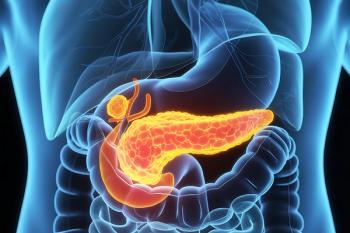
Updated: Lilly Cuts Prices of Some Insulins and Caps Out-of-Pocket Costs
The price cuts apply to Lilly’s nonbranded insulin, Humalog, Humulin and its Lantus biosimilar.
Eli Lilly is
• Cutting the list price of its non-branded insulin, Insulin Lispro Injection, to $25 a vial. Effective May 1, 2023, it will be the lowest list-priced mealtime insulin available, and less than the price of a Humalog vial in 1999.
• Cutting the list price of Humalog, Lilly's most commonly prescribed insulin, and Humulin by 70%, effective in fourth quarter of 2023.
• Launching Rezvoglar injection, a basal insulin that is biosimilar to, and interchangeable with, Lantus (insulin glargine) injection, for $92 per five pack of KwikPens, a 78% discount to Lantus, effective April 1, 2023.
For those with insurance, Lilly will automatically cap out-of-pocket costs at $35 at participating retail pharmacies for people with commercial insurance. Patients without insurance can access a saving cards to receive Lilly insulins at $35 a month.
“Because these price cuts will take time for the insurance and pharmacy system to implement, we are taking the additional step to immediately cap out-of-pocket costs for patients who use Lilly insulin and are not covered by the recent Medicare Part D cap,” David A. Ricks, Lilly’s chair and chief executive officer, said in a press release.
The price of insulin to patients has been a major focus of drug price reform. The Inflation Reduction Act signed by President Joseph R. Biden in August 2022, for example, caps out-of-pocket costs for insulin at $35 for Medicare beneficiaries, but a $35 cap on insulin for patients outside of Medicare failed in the Senate.
Over the last few years, Lilly has made efforts to provide more affordable insulins for patients. In 2022, Lilly lowered the list price for Insulin Lispro Injection to $82.41 for individual vials and $159.12 for a pack of five pens, which is 70% less than Humalog U-100 counterparts. Additionally, in December 2022, Lilly
A report last year from the Kaiser Family Foundation (KFF) that found that if insulin copays were capped at $35, Medicare Part D enrollees would save 29% on average. The analysis found that out-of-pocket spending by people with Medicare Part D for insulin products quadrupled between 2007 to 2019.
After Lilly's announcement, questions began about whether other companies would do the same. Both Sanofi and Novo Nordisk said they are committed to ensuring diabetes patients have affordable medications.
A spokesperson for Sanofi pointed to the company's copay assistance programs, which limits out-of-pocket expenses for a majority of insured patients to $15 or less for their diabetes medicines for a 30-day supply.
Those who are uninsured are eligible for the Insulins Valyou Savings Program, which enables them to buy one or multiple Sanofi insulins at $35 for a 30-day supply. The company also provides free medications to qualified low- and middle-income patients through the patient assistance component of the Sanofi Patient Connection program. The comapny offers Soliqua 100/33’s to uninsured patients for $99 per box of pens, for up to two boxes of pens for a 30-day supply. Additionally, last year, Sanofi launched Insulin Glargine U-100 at a price that is 60% less than the current Lantus list price.
A spokesperson for Novo Nordisk said that for 10 years, they have offered a human insulin for about $25 per vial through Walmart. In addition, through NovoCare, the company offers a 30-day supply of a combination of its insulin products (up to three vials or two packs of pens) for $99, equating to $33/vial or $49.50/pack of pens.
For commercially insured patients, Novo Nordisk offers co-pay programs for several insulin products for $25 to $35 depending on the product. Additionally, in 2022 about 63,000 patients in the United States received free insulins from Novo Nordisk, and almost 1.5 million people used some form of Novo Nordisk assistance for our insulin products.
This story was updated to include information from Sanofi and Novo Nordisk.
Newsletter
Get the latest industry news, event updates, and more from Managed healthcare Executive.























